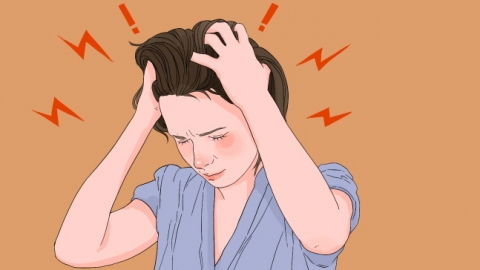Why are mentally ill patients afraid of sounds?
Sensitivity to sound in individuals with mental disorders may be caused by auditory center hypersensitivity, abnormal brain information processing, anxiety disorder, schizophrenia, post-traumatic stress disorder (PTSD), and other conditions. If discomfort symptoms occur, it is recommended to seek timely diagnosis and treatment at a正规 hospital. Detailed analysis is as follows:

1. Auditory Center Hypersensitivity: The brain's auditory center has a lowered threshold for sound stimulation, causing even slight noises to produce intense perception and discomfort. Creating a quiet environment, avoiding sudden noises, and reducing the frequency of sound exposure can help.
2. Abnormal Brain Information Processing: Impaired filtering and integration of sound signals in the brain make it difficult to distinguish irrelevant sounds, leading to auditory overload and fear. Gradual sound desensitization training using gentle sounds can improve information processing ability.
3. Anxiety Disorder: In an anxious state, sympathetic nervous system activation leads to heightened sensitivity to sounds, accompanied by palpitations and restlessness. Medications such as alprazolam tablets, clonazepam tablets, and buspirone hydrochloride tablets may be taken under medical guidance, along with relaxation exercises to alleviate anxiety.
4. Schizophrenia: Sensory disturbances may cause hallucinations or delusions related to sounds, making patients perceive sounds as threatening, often accompanied by disorganized thinking. Antipsychotic medications such as risperidone tablets, olanzapine tablets, and quetiapine fumarate tablets should be taken as prescribed, combined with psychological interventions to correct cognitive distortions.
5. Post-Traumatic Stress Disorder (PTSD): Specific sounds associated with traumatic events can trigger fear responses when heard again, often accompanied by flashbacks and nightmares. Doctors may recommend medications such as sertraline tablets, paroxetine tablets, and fluvoxamine maleate tablets, along with exposure therapy for gradual desensitization.
In daily life, it is important to provide patients with a quiet and comfortable environment and avoid sudden loud noises; offer understanding and emotional support to minimize psychological stress; strictly adhere to prescribed medication regimens; and attend regular follow-up appointments to promote stable recovery.




